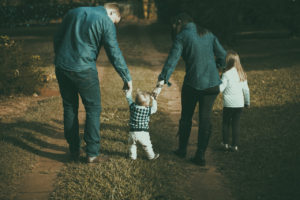Last week I was driving down Pearl Street in Burlington. There was a woman crossing in the crosswalk and so I stopped to let her cross. A young man was pulling out of a parking space and into the roadway behind me. He didn’t see me stopped in the road and he drove into the back of my car. There was significant damage so we moved the cars to the side of the road and the pedestrian stopped to help.
Accidents happen.
In calm manner, everyone involved made sure each other was safe and exchanged information. Then came the question – must we call the police? Each of us, from three different walks of life, brought together only by a literal accident espoused our reluctance to. The pedestrian stated that she had been to a protest recently and was concerned that her name might be logged somewhere or that she would be blamed somehow for lawfully crossing the street in a crosswalk. The young man was in tears, afraid that because his actions led to the accident that the police would ticket or arrest him. No one appeared to be under the influence of any drugs or alcohol. I was concerned because I have seen far too many polite, civil encounters escalate when police arrive on scene.
The Vermont leaving the scene of accident statute reads:
“The operator of a motor vehicle who has caused or is involved in a crash resulting in injury to any person other than the operator, or in damage to any property other than the vehicle then under his or her control, shall immediately stop and render any assistance reasonably necessary… The operator shall give his or her name, residence, license number, and the name of the owner of the motor vehicle to any person who is injured or whose property is damaged and to any enforcement officer. A person who violates this section shall be fined not more than $2,000.00 or imprisoned for not more than two years, or both.”
The accident occurred on a busy street in the afternoon. The three of us didn’t know if anyone else had seen the accident and called the police. Given the requirement that the operators “shall” provide the requisite information “to any enforcement officer,” I was concerned that even if we all agreed that everything was fine and all proper information was exchanged that we could still risk getting a leaving the scene of an accident charge if law enforcement was to arrive and we had all left. Therefore, we made the decision to call the police.
I called on behalf of all of us. The police arrived and directed us where to stand (though there was no need to as we were all standing peacefully on the sidewalk) and took our information. We were provided a crash report and allowed to leave. The police presence was still intimidating.
While our story had didn’t go wrong, it was partly because we all made a concerted effort, in advance of police arrival on scene that we would keep the interaction calm. We felt fear in calling the police when a simple accident happened. We acknowledged and spoke openly about making sure to de-escalate the situation if the police were amped up when they arrived. We, the people who the police are employed to serve, did not want to call them for fear of how they might change the dynamic. This fear is real, legitimate and pervasive. I work in criminal court in Vermont everyday and I was still scared that calling the police would create a situation outside of our control. We, as people involved in accident or as a citizens of Vermont, shouldn’t have to fear that calling the police could lead to an unneeded arrest, restraint, or bodily injury. This is a problem. We need to work on it.








